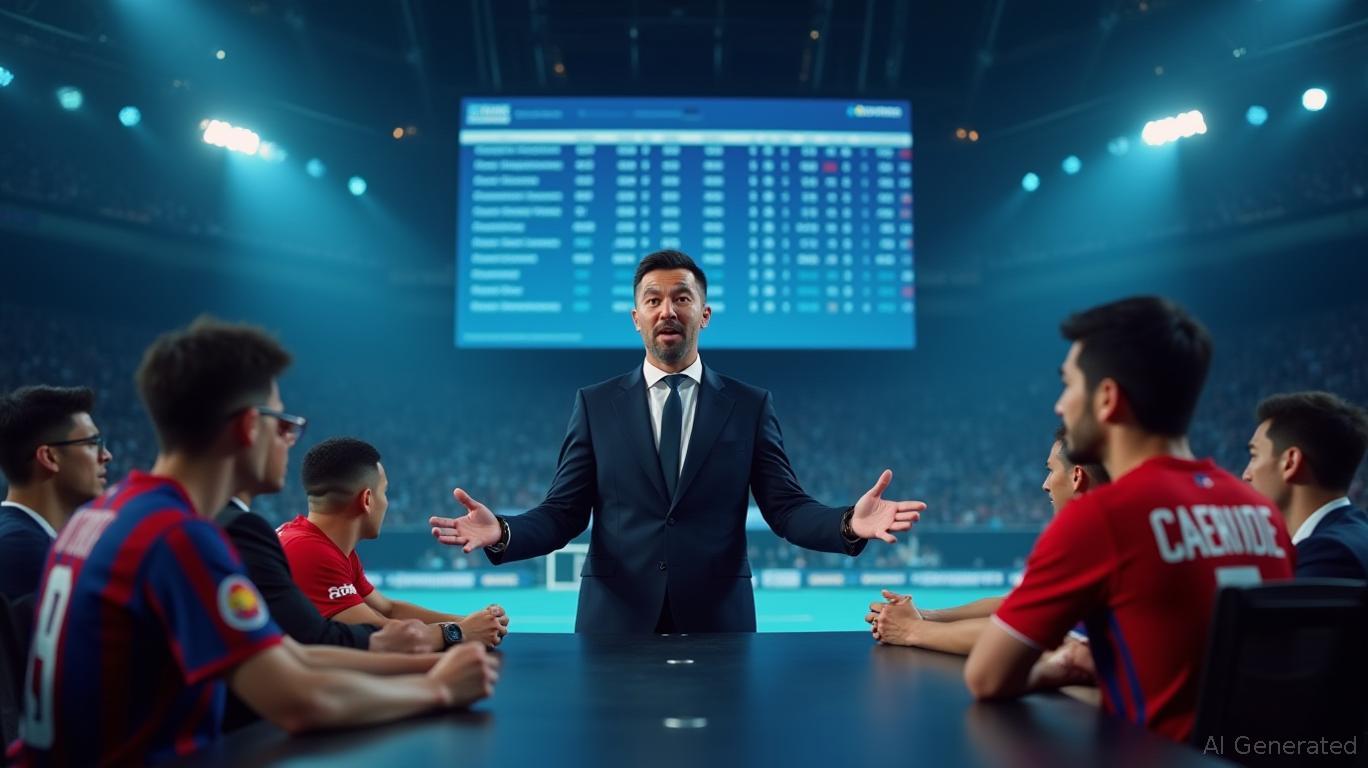Technology
Why Malta is the ultimate travel destination for gamers
Located in the heart of the Mediterranean, Malta has become a top destination for luxury travellers and serious gamblers alike. Its warm climate, stunning coastline and welcoming culture make it the perfect place to combine leisure with high-stakes gaming. The island offers a unique blend of beautiful historic sites, upscale resorts and a thriving online […]

Located in the heart of the Mediterranean, Malta has become a top destination for luxury travellers and serious gamblers alike. Its warm climate, stunning coastline and welcoming culture make it the perfect place to combine leisure with high-stakes gaming. The island offers a unique blend of beautiful historic sites, upscale resorts and a thriving online gaming scene that appeals to discerning visitors.
Prestigious casinos like Casino Malta and Dragonara Casino cater to VIP guests with private rooms, exclusive lounges and high-limit gaming tables featuring bets up to €20,000. These venues use advanced surveillance systems, RFID chip tracking and real-time analytics to guarantee fair play and enhanced security.
Luxury accommodations such as The Westin Dragonara Resort and Corinthia Palace provide world-class service, gourmet dining and rejuvenating spa treatments utilizing cutting-edge wellness technologies like hydrotherapy circuits and infrared saunas. Many resorts also offer smart room controls, private butler service and limousine transfers for added convenience. Malta’s yacht marinas, including the Grand Harbour Marina capable of hosting superyachts over 100 meters, along with helicopter tours and curated cultural excursions, add to the island’s allure for luxury and adventure seekers.
As a global hub for online gaming, Malta features tech lounges and VIP eSports betting rooms equipped with ultra-low latency streaming, interactive touchscreens and AR/VR gaming booths. Regulated by the Malta Gaming Authority (MGA), these platforms allow secure live betting via mobile devices using blockchain technology and two-factor authentication. Combined with year-round sunny weather and English as an official language, Malta offers an unmatched blend of relaxation, luxury and cutting-edge gaming innovation.
The attraction of Malta’s iGaming set-up
Malta’s reputation as a premier gaming hub is well-earned. The island hosts over 300 iGaming companies, contributing roughly 12% to the national GDP and creating thousands of high-skilled jobs. This dynamic sector is tightly regulated by the MGA, established in 2001, which enforces strict licensing standards, comprehensive anti-money laundering protocols, mandatory player protection policies and regular independent audits to ensure fairness and transparency. The MGA’s Remote Gaming Regulations provide a secure and adaptable framework allowing companies to offer a wide variety of services including sports betting, online casinos, poker and emerging game types and all under rigorous compliance monitoring and responsible gaming mandates.
Malta’s iGaming ecosystem continually embraces cutting-edge technology to enhance player safety and experience. Online casino review sites like www.norgesspill.com play a vital role by evaluating different online casino operators that deploy certified Random Number Generators (RNGs) independently tested by labs such as eCOGRA and iTech Labs, guaranteeing game fairness. They also verify the use of advanced cybersecurity measures like end-to-end SSL encryption to protect user data, multi-factor authentication (MFA) to prevent unauthorized access and AI-powered real-time fraud detection systems that analyse user behaviour patterns to mitigate risks. Additionally, geo-location services ensure compliance with jurisdictional restrictions, vital for maintaining legal operation across global markets.
In recent years, Malta’s regulatory framework has evolved to accommodate rapid technological advances and industry trends. The MGA has recently strengthened its supervisory strategies through enhanced external compliance audits and thematic reviews, addressing concerns related to virtual asset service providers (VASPs) and cryptocurrency usage within gaming platforms.
Malta also remains at the forefront of blockchain adoption, encouraging operators to experiment with smart contracts and decentralized gaming models. Cryptocurrency payment gateways supporting Bitcoin, Ethereum and stablecoins have become increasingly common, offering players faster, more transparent transactions.
Supporting this robust regulatory and technological environment is Malta’s top-tier IT infrastructure. The island hosts multiple Tier III+ certified data centres, ensuring 99.99% uptime and redundancy, coupled with high-speed fibre-optic networks and ultra-low latency connectivity. This infrastructure enables seamless, high-quality gaming experiences, including HD live dealer streams, instantaneous bet processing and cross-platform playability on mobile and desktop devices. Such technical excellence attracts not only operators but also a global player base seeking reliable, immersive entertainment.
With its combination of strong regulation, innovative technology and global market reach, Malta remains an unrivalled leader in the iGaming industry. Online casino review sites serve as trusted guides for players worldwide, helping them navigate the expansive Maltese gaming market by providing detailed insights on licensing status, software providers, payment methods and security features. This symbiotic ecosystem cements Malta’s status as a premier destination for both iGaming companies and players seeking the highest standards of safety, fairness and innovation.
Luxury accommodations
Malta offers a wide array of luxury accommodations and premium lifestyle experiences that cater to elite travellers and high-net-worth individuals. From five-star resorts perched along the island’s scenic coastline to Michelin-starred restaurants that reimagine Mediterranean cuisine, Malta continues to evolve as a top-tier destination for luxury tourism. As of 2025, the hospitality sector has seen increased investment in smart tourism infrastructure, with luxury hotels now integrating advanced automation technologies, energy-efficient systems and AI-powered personalization tools to elevate guest experiences.
Landmark properties such as The Phoenicia Hotel in Valletta and Kempinski Hotel San Lawrenz in Gozo seamlessly combine Maltese architectural heritage with state-of-the-art amenities. These include climate-responsive building designs, automated lighting and temperature systems and NFC-enabled room access controlled via mobile apps. Guests enjoy private infinity pools equipped with temperature sensors and LED lighting, voice-activated smart controls and 24/7 virtual concierge services that leverage AI to tailor recommendations based on user preferences.
Malta’s luxury accommodations also emphasize immersive cultural and historical experiences enhanced by the latest digital tools. For instance, augmented reality apps used during private guided tours of UNESCO World Heritage Sites like Valletta and Mdina enable real-time visualization of historical reconstructions, offering guests an interactive journey through Malta’s 7,000-year-old past. QR-coded exhibits and multilingual AI guides further personalize the storytelling experience.
For relaxation and entertainment, exclusive beach clubs such as Café del Mar Malta and MedAsia Playa now feature premium VIP lounges outfitted with surround-sound audio zones, biometric entry systems and gourmet menus supported by IoT-enabled kitchen management. These venues also offer interactive touch-ordering systems for food and drink service via tablets, enhancing guest convenience and minimizing wait times.
Adventure and luxury merge through bespoke excursions like private yacht charters equipped with autopilot AI navigation, radar-assisted docking systems and underwater drones capable of live-streaming marine life in 4K. Companies offering these services now include onboard 5G satellite connectivity, eco-desalination units and real-time marine mapping tools for eco-conscious exploration.
Recent developments in Malta’s luxury tourism sector include the 2024 launch of Valletta Waterfront’s Smart Marina Project, which integrates IoT sensors for berth availability, renewable energy supply for yachts and digital concierge kiosks. Additionally, several resorts are piloting blockchain-based guest loyalty programs, allowing visitors to earn and redeem rewards through secure digital wallets accepted across partnered luxury brands and hospitality services on the island.
Malta’s seamless fusion of cultural richness, advanced hospitality technology and personalized luxury ensures a world-class experience for travelers seeking sophistication, comfort and exclusivity. Whether enjoying AI-curated spa treatments or piloting a submersible to explore underwater wrecks, visitors will find that Malta’s premium offerings are on par with, if not surpassing those of major global luxury destinations.
Prestigious gaming events
Malta plays host to some of the most prestigious and technologically advanced iGaming events in the world. These events not only enhance the island’s global profile but also inject significant value into the local economy. The Battle of Malta poker tournament, first launched in 2012, has evolved into one of Europe’s premier stand-alone poker competitions. The 2024 edition attracted more than 7,500 entries and featured a record-breaking prize pool of nearly €4.8 million. The tournament incorporating automated RFID-enabled card tracking, digital card shuffling machines with ISO/IEC 27001 certification and real-time gameplay analytics displayed on live dashboards. These technologies improve transparency and player trust while enabling tournament directors to monitor table flow, chip counts and player stats with remarkable accuracy. Live-streamed events also use ultra-low latency broadcast systems and multi-angle HD cameras for enhanced spectator engagement worldwide.
Another cornerstone of Malta’s gaming calendar is the SiGMA Europe Summit, widely regarded as one of the largest and most influential iGaming expos globally. The 2024 edition drew over 25,000 attendees from more than 100 countries, contributing over €100 million to Malta’s tourism and hospitality sector and supporting around 10,000 local jobs annually. SiGMA has become an essential meeting point for industry leaders, tech innovators, regulators and investors.
Technologically, SiGMA continues to push the boundaries of innovation through its expansive tech expo, where the latest advancements in the gaming industry are showcased. Recent highlights include the introduction of AI-powered player behaviour analytics that enable real-time risk assessments and automatic flagging for responsible gambling, helping operators proactively manage player well-being. Blockchain-based RNG validation platforms were also featured, offering provably fair gaming with transparent audit trails to ensure integrity and trust.
The expo demonstrated Web3 casino infrastructure, including wallet less login systems and NFT-based loyalty programs, which simplify user access and reward engagement with secure, blockchain-backed technology. Attendees also had the chance to experience hyper-immersive VR and AR casino environments, with games like roulette, blackjack and slots brought to life through Meta Quest and HTC Vive headsets, providing a glimpse into the future of fully immersive, interactive gaming experiences.
SiGMA also hosts live hackathons and developer challenges, where coders build prototype gambling apps under regulatory constraints in 48 hours, fostering innovation in AML compliance tools, crypto payments and GDPR-compatible data systems. Several iGaming startups debuted quantum encryption prototypes for payment security at SiGMA 2024, signalling the industry’s focus on future-proofing its infrastructure.
The conference is also instrumental in driving discussions around regulatory convergence, cross-border licensing and the implementation of ESG (Environmental, Social, Governance) metrics in gaming operations. Panels frequently feature representatives from the MGA, European Gaming and Betting Association (EGBA) and Fintech blockchain consortia, emphasizing a holistic and forward-looking industry roadmap.
These world-class events serve as catalysts for collaboration, technological evolution and policy dialogue, ensuring Malta remains a trailblazer in the global gaming ecosystem. For gaming professionals and tech entrepreneurs, attending events like Battle of Malta and SiGMA Europe is not just a networking opportunity but a front-row seat to the future of iGaming.
Economic diversification of Malta
While iGaming remains a major pillar of Malta’s economy, the island has been actively expanding into other high-value sectors to ensure long-term economic resilience and sustainability. Key industries experiencing rapid development include fintech, aerospace, biotechnology, digital health and automotive technology which all are supported by government policy, EU partnerships and cutting-edge infrastructure.
Malta’s fintech sector has witnessed exponential growth, thanks in part to the Virtual Financial Assets Act (VFA) and the Malta Digital Innovation Authority (MDIA). These frameworks have attracted companies in blockchain, decentralized finance (DeFi) and digital banking, particularly those developing smart contracts, digital wallets and regtech solutions. Malta is also becoming a testbed for CBDCs (Central Bank Digital Currencies) and cross-border digital payment trials, making it a significant player in Europe’s fintech future.
In the automotive sector, Malta is promoting sustainable transport through various initiatives, such as grant schemes for electric vehicles and pedelecs, reflecting its broader commitment to environmental responsibility. The nation has deployed over 400 public fast-charging stations, compatible with CCS (Combined Charging System) and Type 2 connectors, enabling widespread EV adoption. The government is also rolling out IoT-enabled smart traffic management systems across urban centres, which use real-time data analytics to reduce congestion, lower emissions and improve travel efficiency. Meanwhile, local startups are innovating in fleet telematics, utilizing AI-driven predictive maintenance, blockchain for secure vehicle data logging, vehicle diagnostics and GPS-integrated fleet optimization software for logistics providers.
In aerospace and aviation, Malta is home to Maintenance, Repair and Overhaul (MRO) hubs serving major international airlines. Facilities such as SR Technics Malta and Lufthansa Technik use digital twin technology, 3D printing for aircraft parts and predictive analytics to streamline maintenance and compliance procedures. The Malta Aviation Cluster is further encouraging R&D in unmanned aerial vehicles (UAVs) and sustainable aviation fuels (SAF).
The biotech and life sciences industry is also gaining momentum, with firms focusing on genomic research, clinical trial data management and AI-assisted drug discovery. Malta’s Life Sciences Park offers shared lab spaces, high-speed connectivity and access to supercomputing resources for molecular simulation and data-intensive bioinformatics work. EU-funded programs are further accelerating research into pharmacogenomics and biodegradable medical devices.
Meanwhile, the digital health sector is integrating telemedicine, remote patient monitoring systems and AI-based diagnostic tools into the national healthcare framework. Malta’s centralized eHealth platform now supports blockchain-secured medical records, cross-border health data exchange and wearable IoT integration, offering opportunities for MedTech companies targeting Mediterranean and EU markets.
These strategic developments combined by strong regulatory frameworks, digital infrastructure and skilled talent, signal Malta’s transformation into a multi-sector innovation hub. Through targeted investment and cross-sector collaboration, the island is positioning itself as a resilient, forward-looking economy ready to lead in several emerging global industries and not just gaming.
Final thoughts
Malta’s unique blend of luxury, historical richness and a dynamic gaming industry positions it as the ultimate destination for gamblers and jetsetters. With continuous investments in technology and infrastructure, the island is poised to maintain its status as a premier luxury hotspot for years to come. The integration of cutting-edge technologies such as 5G connectivity and cloud-based gaming platforms ensures that both online and land-based gaming experiences remain fast, secure and immersive.
Additionally, ongoing developments in smart city initiatives, including AI-powered public services and sustainable energy projects, enhance the quality of life for residents and visitors alike. Malta’s focus on personalized luxury, supported by AI-driven concierge services and advanced biometric security systems in high-end resorts and casinos, creates an unparalleled experience of convenience and exclusivity.
Moreover, the island’s expanding portfolio of exclusive events, including VIP gaming tournaments and elite cultural festivals, continues to attract a global audience seeking both entertainment and sophistication. All these elements combined reinforce Malta’s position as a forward-thinking, luxurious destination that balances tradition with innovation.
Disclaimer: Play responsibly. Players must be over 18. For help visit https://www.rgf.org.mt/
Technology
A Strategic Lever for Institutional Exposure and Sports Tech Dominance
The addition of Genius Sports Limited (NYSE: GENI) to the Russell 3000® Index on June 30, 2025, marks a pivotal moment for the company’s trajectory. This milestone, announced on June 25, 2025, positions Genius Sports to benefit from a surge in institutional investor attention and passive fund inflows, while underscoring its growing clout in the […]

The addition of Genius Sports Limited (NYSE: GENI) to the Russell 3000® Index on June 30, 2025, marks a pivotal moment for the company’s trajectory. This milestone, announced on June 25, 2025, positions Genius Sports to benefit from a surge in institutional investor attention and passive fund inflows, while underscoring its growing clout in the fast-evolving sports technology sector. For investors, this inclusion is not merely a symbolic victory but a catalyst for sustained growth—a combination of strategic exposure and sector tailwinds that could drive outsized returns.
The Russell 3000: A Gateway to $10.6 Trillion in Institutional Capital
Membership in the Russell 3000® Index, which encompasses the 4,000 largest U.S. stocks by market capitalization, is a powerful accelerant for corporate visibility. The index is benchmarked by institutional investors managing over $10.6 trillion in assets as of June 2024, with passive funds obligated to mirror its composition. For Genius Sports, this means automatic inclusion in either the Russell 1000® or Russell 2000® Index, depending on its market cap ranking.
The immediate impact is clear: the company’s stock, already up 16.5% year-to-date, is now on the radar of index funds and ETFs that must purchase shares to track the Russell 3000. This passive demand often creates a “reconstitution rally,” as seen historically with newly added stocks. Beyond short-term momentum, however, the inclusion signals to active investors that Genius Sports has earned credibility in a highly competitive market—a vote of confidence in its business model and growth prospects.
A Sports Tech Leader in a High-Growth Sector
Genius Sports’ inclusion in the Russell 3000 is a reflection of its dominance in sports technology, a sector primed for exponential growth. The company’s core offerings—live data distribution, integrity monitoring, and fan engagement tools—are critical to modern sports ecosystems. With partnerships spanning over 700 organizations, including the NFL, English Premier League, and UEFA, Genius Sports sits at the nexus of a $50 billion global sports tech market expected to grow at a 10% CAGR through 2030, per industry analysts.

The company’s integrity monitoring solutions, which combat match-fixing and illegal betting, are particularly timely. As sports leagues face mounting pressure to safeguard their brands, Genius Sports’ anti-corruption tools have become table stakes for major tournaments. This demand is only intensifying, driven by global regulations and the rise of legal sports betting in markets like the U.S.
Why This Inclusion Matters for Growth
The Russell 3000 inclusion amplifies Genius Sports’ ability to capitalize on these trends in two critical ways:
- Access to Capital and Credibility: By joining a prestigious index, Genius Sports gains legitimacy in institutional portfolios, potentially lowering its cost of capital and enabling strategic acquisitions or R&D investments.
- Network Effects: The influx of institutional investors often brings with it a broader ecosystem of partnerships and cross-industry collaborations. For example, funds linked to tech or media conglomerates might push for deeper integrations between Genius Sports’ data platforms and their own platforms.
Risks and Considerations
While the outlook is bullish, investors must weigh risks. The sports tech sector is highly competitive, with rivals like Sportradar and Amazon’s Audible eyeing similar markets. Additionally, regulatory shifts or a slowdown in sports betting adoption could dampen demand. However, Genius Sports’ first-mover advantage in integrity monitoring and its existing league partnerships act as formidable barriers to entry.
Investment Thesis: A Long-Term Play with Near-Term Catalysts
The Russell 3000 inclusion is both a near-term catalyst and a long-term seal of approval. Short-term investors may benefit from reconstitution-driven buying, while long-term holders can capitalize on Genius Sports’ secular growth. Analysts’ average price target, already reflecting a 30% upside from current levels, suggests the market is beginning to price in this potential.
Final Recommendation
For investors seeking exposure to the sports tech boom, Genius Sports presents a compelling opportunity. The Russell inclusion is a validation of its strategic positioning and a harbinger of institutional inflows. With a robust pipeline of partnerships, a sector poised for growth, and a stock primed to benefit from passive fund allocations, GENI merits a buy rating for portfolios with a 12–18 month horizon. The next 12 months will test whether the company can leverage this milestone into sustained market leadership—a bet that looks increasingly wise in a world where sports and technology are inseparable.
Technology
“From Gaming to Glowing”: Video Game Engines Now Driving the Most Crucial Breakthroughs in Fusion Energy Development
IN A NUTSHELL 



| IN A NUTSHELL |
|
In the quest for a sustainable energy future, the potential of fusion reactors stands out as a beacon of hope. These reactors have the capability to provide virtually endless energy but come with the significant challenge of tracking critical particle collisions within their systems. Recent advancements from South Korean scientists have revealed an innovative solution by leveraging technology from an unexpected domain: video games. This novel approach, using game algorithms to create digital twins of fusion reactors, could revolutionize how we understand and optimize these complex systems. Here’s how this fascinating intersection of technology and science is paving the way for breakthroughs in fusion energy.
The Core Challenge of Fusion Reactors
At the heart of any fusion reactor is the task of smashing subatomic particles together in a searing hot, high-energy plasma. This process occurs in devices known as tokamaks, which are toroidal-shaped fusion reactors. The primary event in these reactors is the collision and fusion of hydrogen isotopes, specifically deuterium and tritium. However, this is just one type of crucial collision. Fast ions, which carry most of the plasma’s kinetic energy, also play a vital role by colliding with bulk ions, maintaining the plasma’s high temperature necessary for fusion reactions. Keeping track of these collisions is immensely challenging due to the chaotic environment within a fusion reactor.
Understanding these collisions is essential because they determine whether a reactor can sustain the necessary conditions for fusion. Yet, the traditional methods of tracking these events are cumbersome and computationally expensive. The challenge lies in accurately modeling these interactions to maintain optimal reactor performance and efficiency.
This Alien-Like Lichen Could Build Martian Cities—Synthetic Organism 3D Prints Homes Straight from Red Planet Soil
Innovative Solutions from Video Game Algorithms
Enter the world of video game technology, where South Korean scientists have discovered a promising method to address the challenges faced by fusion reactors. By creating a digital twin of the Korea Superconducting Tokamak Advanced Research (KSTAR), researchers have developed a virtual model of their reactor, utilizing algorithms initially designed for video games. This digital twin, known as V-KSTAR, provides a platform where scientists can experiment and obtain accurate results without the physical constraints of a real tokamak.
This approach has dramatically improved the visualization and tracking of ultrafast ion collisions in a 3D digital space. The use of a specific video game tool, originally intended to detect a bullet hitting a virtual target, has been repurposed to detect fast ion collisions in the reactor. This innovation not only reduces the need for constant calculations but also offers a more efficient way to monitor and optimize reactor performance.
“China Cuts the Cord”: Home-Grown Operating System Tested in Space to Eliminate Reliance on Foreign Tech
Enhancing Reactor Performance with Unity Engine
To further enhance the accuracy and efficiency of fusion reactors, scientists have turned to the Unity Engine, a popular video game engine. In a recent study published in the journal Computer Physics Communications, researchers detail how this engine was used to create a digital recreation of the KSTAR reactor. The video game-boosted algorithm developed through this process has the potential to increase fusion reactor analysis by a factor of 15 while eliminating 99.9% of the calculations previously required.
This significant improvement is achieved because the algorithm only activates when a collision is likely, thereby optimizing the computational resources needed to track particle interactions. Such advancements are particularly crucial for maintaining the plasma’s temperature through methods like neutral beam injection, which involves injecting high-energy particles into the plasma. The enhanced digital framework supports improved visualization and analysis, crucial for diagnosing and correcting plasma imbalances.
“Faster Than Starlink”: China’s High-Orbit Laser Tech Shatters Speed Records in Space Communication Race
The Future of Fusion Technology and Digital Twins
The development of virtual reactors like V-KSTAR signifies a major step forward in fusion technology. These digital twins are not just advanced simulators but are becoming critical diagnostic tools as fusion reactors transition from experimental setups to practical energy solutions. By integrating artificial intelligence and machine learning, these virtual reactors offer unprecedented insights into reactor behavior, enabling real-time adjustments and improvements.
As the fusion dream inches closer to reality, the ability to experiment with and optimize reactors in a virtual environment becomes increasingly invaluable. This approach not only saves time and resources but also accelerates the pace of innovation in fusion technology. The synergy between video game algorithms and fusion research exemplifies how interdisciplinary collaborations can lead to groundbreaking advancements.
In a world urgently seeking sustainable energy solutions, the fusion of video game technology with reactor science offers a promising path forward. As researchers continue to develop and refine these digital twins, one must wonder: how else might unexpected technologies shape the future of energy and beyond?
Our author used artificial intelligence to enhance this article.
Did you like it? 4.6/5 (23)
Technology
What Are Sports Prediction Markets and Why Are They Controversial?
The rapid rise of sports prediction markets has already clinched first place for the biggest story in the U.S. betting industry this year. Businesses offering contracts on sports events are now being valued in the billions. But while their water cooler conversation value has been priceless for industry insiders, they remain somewhat of an unknown […]

The rapid rise of sports prediction markets has already clinched first place for the biggest story in the U.S. betting industry this year.
Businesses offering contracts on sports events are now being valued in the billions. But while their water cooler conversation value has been priceless for industry insiders, they remain somewhat of an unknown to the average sports fan.
Proponents of prediction markets, in which people trade contracts tied to the result of future real-world events, describe them as a revolutionary asset class and, in the words of Kalshi CEO Tarek Mansour, a “truth machine.”
They claim the markets are more accurate than polls or other statistical prediction models, while being useful as a tool to hedge against the financial effects of real-world events.
Critics counter that sports futures trading is no different than gambling and must be regulated and taxed as such on a state-by-state basis. Since late December, sports prediction markets have been available in all 50 states, overseen by the federal Commodity Futures Trading Commission (CFTC) despite legal challenges.
Below, Sportico answers key questions about prediction markets.
What is a prediction market?
Prediction markets allow people to stake money on the results of real-world events: elections, papal conclaves, movie review scores and sports—which is more popular now than any other genre.
They are offered in the form of “yes” and “no” contracts. As in, “yes,” the New York Mets will win tonight. Or “no,” President Donald Trump will not say “China” in his next speech.
Prediction markets involving all sorts of topics have operated internationally for decades.
In the U.S., sports has taken off as the dominant prediction market menu item as regulations have loosened. Crypto.com became the first to offer sports contracts nationwide in late December, against the wishes of the departing Joe Biden presidential administration. Kalshi followed suit in January. Each knew the incoming Trump administration would be more permissive.
Before Crypto.com and Kalshi, only Sporttrade had active sports prediction markets in the U.S., albeit with a different approach. Sporttrade operates in just five states with oversight from state gaming regulators. The Pennsylvania-headquartered company has agreed with state governments that its prediction markets are a form of sports betting.
However, Sporttrade is now pushing for access to every state under the federal regulatory model to avoid suffering what it claims would be “irreparable harm” from competitors. The company hopes the state regulators it has long worked with understand its predicament.
How do prediction markets work?
Prediction markets offer contracts always priced at a fraction of $1. The prices correspond with the live probability of an event outcome happening, as determined by what the public believes at a given moment. The closer to $1 the contract is, the higher the expected probability of it happening—but also the lower the potential profit for buyers.
If the public determines there is a 40% chance of an event occurring, corresponding “yes” event contracts are priced at about $0.40 before trading fees. The corresponding “no” contracts cost $0.60.
Winning contracts are always paid out as a full dollar once the outcome is finalized.
Profit on each contract equals the difference between a user’s initial payment (plus fees) and the full $1 they receive per accurate prediction. So, if a user buys 10 contracts for the New York Mets to beat the Atlanta Braves at $0.40 a pop, and the Mets win, the user will earn a profit of $0.60 per contract, amounting to $6 in overall profit out of their $10 total return.
Users can also sell contracts mid-game as the value changes based on probability swings. With the Mets up big in the eighth inning, for example, the above user could sell the original $0.40 contracts for $0.95 apiece if they are worried the team will blow its lead late.
How is this different from sportsbooks?
Prediction market platforms often distance themselves from sportsbooks by highlighting how public sentiment drives their contract prices. Sportsbooks set odds themselves with a built-in edge, while Kalshi, Crypto.com and Polymarket (not yet available in U.S.) tout their peer-to-peer models.
But there is a caveat: Futures trading platforms like Kalshi turn to institutional market makers to fill contracts when there isn’t someone waiting on the other side to complete a deal. These are often huge funds like Susquehanna, which price contracts slightly above their true value, tipping the scale away from retail traders who take the deals anyway so they can immediately enter a market.
With prediction market platforms also charging trading fees on a per-contract basis, users almost always lose money in the long run, just like with sportsbooks.
Are prediction markets gambling?
This is the multibillion-dollar question being litigated in multiple courts, including the U.S. Court of Appeals for the Third Circuit where New Jersey received support in its battle against Kalshi via an amicus brief signed by a group of 34 states.
Most of the financial technology companies that offer prediction markets argue they are providing access to financial assets, not gambling, and thus should be overseen by the federal government rather than state gaming commissions. Proponents of prediction markets claim even sports markets have hedging utility, citing the example of a team winning a championship providing a boost to local businesses around a stadium.
But most U.S. state attorneys general, tribal groups, sportsbooks and gambling addiction organizations disagree. They point out the absurdity in saying there’s investment value in many sports prediction market contracts, such as the 2025 Nathan’s Hot Dog Contest winner or single-game baseball wagers.
Behaviorally, critics say, people approach prediction markets as a gambler would—and because prediction market platforms are promoted as an investment tool, there is arguably the danger of even riskier user activity due to overconfidence in trading.
Sporttrade’s business model further undercuts arguments that the market are not betting, operating as it has under state gaming licenses.
“You’re not going to hear me say this isn’t sports betting,” Sporttrade CEO Alex Kane told Sportico this year. “That’s a ridiculous comment.”
What’s next for sports prediction markets?
If courts determine event futures trading is a financial asset that falls under the purview of the Commodity Exchange Act, initially passed to set guidelines of futures such as oil and grain prices, then the federal Commodity Futures Trading Commission (CFTC) would be the exclusive source of oversight rather than states.
The nominee to lead that agency, Brian Quintenz, is continuing to serve as a Kalshi board member until his confirmation. He has for years argued in favor of sports prediction markets being under CFTC control, making the case they have financial utility and fall under the Congress-approved Commodity Exchange Act.
Conversely, if courts rule event futures trading is gambling and should be overseen by states, then the financial technology platforms would take a hit from a business perspective. The customer base of the companies would shrink from 50 states to just the states where mobile betting has been legalized (38 states and Washington, D.C.). They would also need to follow local regulations and pay local taxes, reducing potential profit margins and their competitive edge. They’d likely lose the ability to offer trading on political outcomes, too.
A third possibility is that Congress will either amend the Commodity Exchange Act or pass new legislation that clarifies how the government should handle sports event contracts.
If prediction markets gain clearer legal backing, traditional sportsbook operators such as DraftKings and FanDuel are open to launching their own versions. FanDuel parent Flutter already offers the sports prediction market platform Betfair abroad.
How do prediction markets make money?
The main source of revenue for exchanges and brokerages is the fees they charge on each trade. This is less lucrative on a per-wager basis than the sportsbook model. However, if it scales to a higher volume than sportsbooks, it could become lucrative.
Right now, Kalshi, Crypto.com and Robinhood have the advantage of reaching U.S. citizens sportsbook operators cannot. The companies are live in all 50 states—even those where mobile sports betting is illegal outside of tribal land—and are available to people 18 years old and up rather than 21 and up.
Polymarket, popular internationally, is not yet available in the U.S. but could eventually come to the states. It has declined to publicly comment on its plans.
Prediction market platforms in the U.S. do not pay the state gambling taxes sportsbook operators do, because they have not been legally defined as gambling, which is among the reasons states are trying to shut them down. Meanwhile, tribal groups with exclusive rights to offer gambling in states like California are concerned prediction markets entering their territories will upend their economies.
Prediction market exchanges vs. brokers
Within the industry, there are two distinct business models: Some own the exchange that executes trades, and some are only brokers that embed another company’s exchange into their platform, while tacking on extra trading fees of their own.
Kalshi and Crypto.com both own an exchange and act as brokers. This means they can facilitate trades within their own platform and let other financial technology companies use their product. Kalshi’s exchange is embedded in the Robinhood app, which acts as a brokerage and has different business goals for prediction markets. Mansour, Kalshi’s CEO, has said he wants to expand the number of brokers his company partners with.
Polymarket is a broker that uses an independent cryptocurrency exchange called Polygon to execute trades.
During the final week of June, Polymarket and Kalshi said they had completed new funding rounds that valued them at $1 billion and $2 billion, respectively. Robinhood, which offers a broader suite of financial products, including stock trading, has market cap of more than $70 billion. News of its foray into prediction markets has helped its stock price gain more than 100% in the first half of 2025.
Technology
REVELYST PRECISION SPORTS TECHNOLOGY NAMES MARK BUNTZ AS VP, BRAND MARKETING AND MERCHANDISING
Buntz’s arrival signals a fresh start for the Revelyst golf technology brands as they look to build their storytelling capabilities and solidify their leadership position in the industry. PROVIDENCE, R.I. — Revelyst Inc., a collective of world-class maker brands that design and manufacture performance gear and precision technologies, announced today it has appointed Mark Buntz […]

Buntz’s arrival signals a fresh start for the Revelyst golf technology brands as they look to build their storytelling capabilities and solidify their leadership position in the industry.
PROVIDENCE, R.I. — Revelyst Inc., a collective of world-class maker brands that design and manufacture performance gear and precision technologies, announced today it has appointed Mark Buntz as VP, Brand Marketing and Merchandising, of its San Diego-based Revelyst Precision Sports Technology platform, which includes golf technology brands Foresight Sports, Bushnell Golf and PinSeeker, effective June 30.
Buntz’s expertise in marketing, brand development and consumer engagement will be instrumental in deepening Revelyst’s connection with golfers and expanding the company’s presence both on and off the course. Buntz will help the brands within the platform elevate and solidify their leadership position in key categories. He will also oversee retail and e-commerce merchandising to ensure a premium, consistent customer experience.
“Mark is a brand builder at heart with a deep appreciation for both performance and storytelling,” said Jeff Foster, General Manager and President of Revelyst Precision Sports Technology. “His vision and leadership will help us better connect with golfers and elevate every aspect of the brands within our Precision Sports Technology platform.”
Buntz brings extensive experience from brands like ESPN, Hulu, TaylorMade and OGIO, a golf and travel brand owned by Callaway Golf, where he served as GM. His expertise in crafting brand vision, positioning products and leading breakthrough marketing programs aligns seamlessly with Revelyst Precision Sports Technology’s mission.
“We’re living in a transformative era in the sport, where today’s golfer is more connected and data-driven than ever,” Buntz said. “I’m thrilled to join the Revelyst team to help shape what’s next for the iconic brands across the Precision Sports Technology platform. It’s an opportunity to serve modern players with innovation they can trust and performance they can see—and I’m eager to help tell that story.”
 About Revelyst
About Revelyst
Revelyst Inc. is a collective of world-class maker brands that design and manufacture performance gear and precision technologies. Our category-defining brands leverage meticulous craftsmanship and cross-collaboration to pursue new innovations that redefine what is humanly possible in the outdoors. Portfolio brands include Foresight Sports, Bushnell Golf, Fox, Bell, Giro, CamelBak, Bushnell, Simms Fishing and more. For more information, visit our website at www.revelyst.com.
Contact
Eric Smith
Phone: 720-772-0877
Email: media.relations@revelyst.com
Technology
Black Vigor Gym Opens Its Doors at Spectrum@Metro, Noida – A New Era of Fitness Begins
Noida: Black Vigor, the premium fitness and wellness brand, has officially launched its latest outlet at Spectrum@Metro, Noida’s leading high-street retail destination. Spanning a massive 25,000 sq. ft. area, the state-of-the-art gym is located in Phase-2 of the project, on the 3rd floor (right wing), and promises to redefine the fitness experience for the city’s […]


Noida: Black Vigor, the premium fitness and wellness brand, has officially launched its latest outlet at Spectrum@Metro, Noida’s leading high-street retail destination. Spanning a massive 25,000 sq. ft. area, the state-of-the-art gym is located in Phase-2 of the project, on the 3rd floor (right wing), and promises to redefine the fitness experience for the city’s health-conscious community.
The newly opened fitness center brings a cutting-edge workout environment to the heart of Noida, offering a perfect blend of advanced equipment, elite personal training, and holistic wellness programs. The facility caters to a wide range of fitness enthusiasts—from beginners to professionals—through strength training, cardio, HIIT, functional training, and personalized fitness regimes.
With a strong emphasis on lifestyle transformation, Black Vigor aims to become the go-to destination for those seeking physical, mental, and emotional well-being under one roof.
“We are delighted to welcome Black Vigor Gym to Spectrum@Metro. As a destination that brings together retail, lifestyle, and wellness, this launch further strengthens our positioning as a holistic hub for today’s urban consumer,” said Ajendra Singh, Vice President- Sales and Marketing, Spectrum@Metro. “The addition of a premium fitness brand like Black Vigor aligns with our commitment to offering a diverse and enriching experience to our visitors.”
The launch of this expansive gym marks another milestone in Black Vigor’s expansion in North India’s fitness sector, offering a modern, inclusive, and performance-driven environment to its members. With wellness and health becoming top priorities post-pandemic, this strategic opening caters to the growing demand for quality fitness infrastructure in NCR.
At the same time, Spectrum@Metro continues to reaffirm its position as Noida’s most vibrant lifestyle and retail destination, providing residents and visitors with a thoughtfully curated blend of shopping, dining, entertainment, and now—fitness.
Technology
ZTE showcases AI-driven ecosystem, gaming innovations
ZTE Corp. highlighted its Full-Scenario Intelligent Ecosystem at a recent showcase, demonstrating how artificial intelligence (AI) can enhance gaming and everyday tech experiences across devices. The highlight of the exhibit was the nubia Neo 3 series, a collection of gaming smartphones under the theme “Born to Win.” The phones combine AI voice interaction, ACG (animation, […]

ZTE Corp. highlighted its Full-Scenario Intelligent Ecosystem at a recent showcase, demonstrating how artificial intelligence (AI) can enhance gaming and everyday tech experiences across devices.
The highlight of the exhibit was the nubia Neo 3 series, a collection of gaming smartphones under the theme “Born to Win.” The phones combine AI voice interaction, ACG (animation, comics, and games) culture, and hardware designed for mobile gamers, including dual gaming triggers, 120Hz refresh displays, and advanced cooling systems.
“We are harnessing ‘soft power’ to connect with culture, infusing our brand with fresh energy and broadening our appeal in consumer markets,” said Ni Fei, SVP of ZTE and president of ZTE Mobile Devices. “By uniting cutting-edge technology and vibrant cultural experiences, we’re engaging the next generation on their terms, revealing the exciting possibilities of what tech can truly offer.”
Beyond smartphones, ZTE unveiled other AI-powered terminals such as the nubia Z70S Ultra, a full-screen phone with an under-display camera and custom optical system; nubia Flip 2, a foldable phone with a larger external display and better imaging; and nubia Pad Pro, a tablet built for both work and leisure.
ZTE also emphasized its strength in fixed wireless access (FWA) and mobile broadband (MBB) solutions, noting top global market share for four years. Key products included the ZTE G5 Ultra, a 5G-Advanced FWA device with speeds up to 19 Gbps, and the ZTE U60 Pro, a portable Wi-Fi 7 device with long battery life and AI-powered performance.
These products are supported by Qualcomm’s Snapdragon X75 platform, enabling faster, more efficient, and flexible wireless connectivity.
Related Stories
-

 Motorsports2 weeks ago
Motorsports2 weeks agoNASCAR Weekend Preview: Autódromo Hermanos Rodríguez
-

 Motorsports3 weeks ago
Motorsports3 weeks agoNASCAR Through the Gears: Denny Hamlin has gas, a border needs crossing, and yes, that’s a Hemi
-

 Health2 weeks ago
Health2 weeks agoGymnast MyKayla Skinner Claims Simone Biles 'Belittled and Ostracized' Her amid Riley …
-

 NIL3 weeks ago
NIL3 weeks agoTennessee law supersedes NCAA eligibility rule
-

 Sports3 weeks ago
Sports3 weeks agoCoco Gauff, The World's Highest
-

 Social Media2 weeks ago
Social Media2 weeks agoPune Athletes Make Global Mark at IRONMAN Hamburg and Brazil 2025
-

 Motorsports2 weeks ago
Motorsports2 weeks agoNASCAR Race Today: Mexico City start times, schedule and how to watch live on TV
-

 Rec Sports3 weeks ago
Rec Sports3 weeks agoLaFollette Owls host youth basketball camp | Lafollette
-

 College Sports2 weeks ago
College Sports2 weeks agoIU basketball recruiting
-

 Health3 weeks ago
Health3 weeks agoOle Miss Ready for New Era of College Athletics


 Virtual reactors like V-KSTAR are becoming essential diagnostic tools, integrating artificial intelligence for real-time optimization.
Virtual reactors like V-KSTAR are becoming essential diagnostic tools, integrating artificial intelligence for real-time optimization.









 all year long for the Twins!
all year long for the Twins!



















